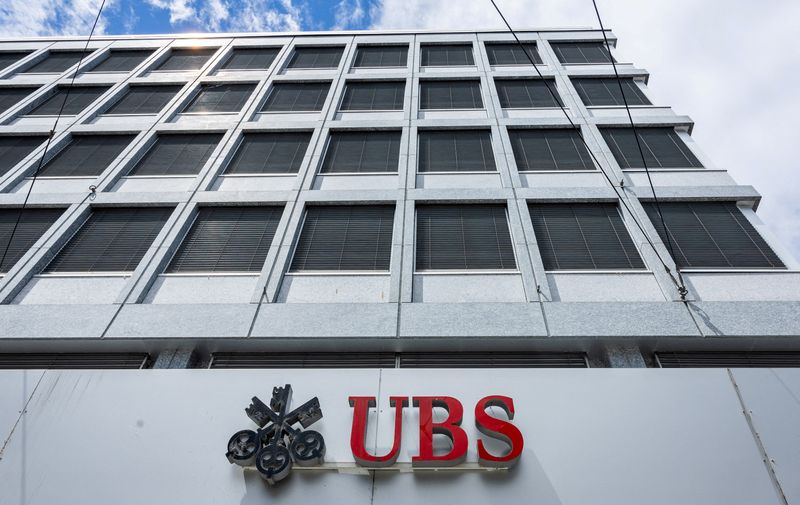Exclusive-UBS urges Swiss government to clarify capital demands, sources say
2024.06.26 06:43
By Stefania Spezzati and Oliver Hirt
ZURICH (Reuters) – UBS is pushing the Swiss government to clarify how much more the bank will need to hold in capital buffers after buying Credit Suisse, amid concerns the talks will drag on for months, unnerving investors, sources familiar with the matter said.
Some of the lender’s top executives had been relieved by the ‘too-big-to-fail’ proposals the government published in April in response to Credit Suisse’s collapse, the sources said, seeing them as surprisingly mild and fluid.
But they have since grown concerned by signs from Stefan Walter, the new head of Swiss regulator FINMA, that he wants UBS to hold more capital, the people said.
They also worry the government has not clarified whether the $15 billion-$25 billion in extra capital the finance minister said in April UBS may need, is on top of the $19 billion it has already committed to hold to reflect its increased size, the people said.
The bank recently detailed its view to the government, with UBS vice president Lukas Gaehwiler, who has worked with Finance Minister Karin Keller-Sutter on the board of a Swiss association, playing a key role in lobbying efforts to limit the capital demands, another person said.
“There is clearly a need to clarify,” said Hans Gersbach, macroeconomics professor at the KOF Swiss Economic Institute at ETH Zurich. “Investors need to know if there are $25 billion more that UBS needs to find, and in which timeframe.”
Representatives for UBS and Switzerland’s government declined to comment. A spokesperson for FINMA said it was important to ensure the resilience of supervised banks and that it supported the government proposals, including on capital.
The capital-related proposals are at the core of Switzerland’s efforts to build a more resilient financial system after the dramatic collapse of Credit Suisse shook confidence in its reputation for stability.
The Financial Stability Board, an international body that monitors the global financial system, said this year that Switzerland should strengthen its banking controls.
UBS executives believe further demands could put it at a competitive disadvantage versus U.S. and European peers. CEO Sergio Ermotti has hit out at calls for more regulation, saying it risks undermining Swiss banking.
Tougher requirements could force UBS to offload more assets to generate capital, analysts say, and could impact its plans to return cash to shareholders.
During a call discussing UBS’s first-quarter results, analysts quizzed Ermotti on whether exiting some markets could be a solution to free up resources.
A year-long rally in UBS shares has faded since the draft rules were unveiled, with the stock falling more than 3% since against a near 2% rise among peers. Two key UBS investors this year flagged concerns that the bank could be on a collision course with regulators over its size.
‘FULL CAPITALISATION’
Switzerland’s new rules are likely to come into force in late 2025 or early 2026. The Federal Council is expected to publish a draft of the measures in early 2025, with a consultation period of up to six months to follow.
FINMA’s Walter said in May he supported a “full capitalisation” of the bank’s subsidiaries, which a source familiar with the matter said is likely to mean UBS needs more capital on top of the $19 billion it is preparing to hold.
If UBS presents a sound plan to unwind the bank in the event of a crisis, and if other too-big-to-fail rules to strengthen the regulator’s powers are approved, FINMA – whose views the government takes into account when approving the rules – could require less capital, the person said.
A FINMA spokesperson said the regulator should be able to impose additional capital requirements if it detects potential problems related to how supervised firms are being managed.

The risk of further capital demands comes at a delicate time for UBS. New liquidity rules kicked in earlier this year, forcing the bank to set aside more liquidity in event of stress, it said in its first-quarter results.
The lender is also dealing with the huge task of migrating Credit Suisse clients. Ermotti told Reuters last month that any delays to the integration could erode planned cost savings.








